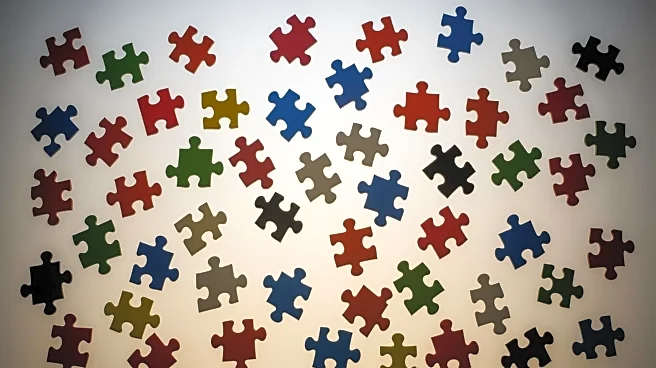What's Happening?
In the upcoming Dutch general election, voters are presented with a choice of 27 political parties and 1,166 candidates vying for 150 seats in the House of Representatives. This extensive list of options is a reflection of the fragmented political landscape
in the Netherlands. The large ballot paper, which includes the names of all parties and candidates, has become a logistical challenge for voters and vote counters alike. To address this, five municipalities are experimenting with smaller, more streamlined ballot papers. Historically, Dutch politics have been characterized by a few dominant parties, but recent years have seen a rise in smaller parties, complicating coalition formation. The far-right Party for Freedom, led by Geert Wilders, is expected to perform well, but center-left and center-right parties are also strong contenders.
Why It's Important?
The fragmentation of Dutch politics, as evidenced by the large number of parties, reflects broader societal divisions and poses challenges for governance. The difficulty in forming stable coalitions can lead to prolonged negotiations and political instability, affecting policy-making and governance. This situation is not unique to the Netherlands and can be seen in other democracies facing similar fragmentation. The outcome of this election could influence the political landscape in Europe, as the Netherlands is a key player in the European Union. The rise of far-right parties, like Geert Wilders' Party for Freedom, also highlights the growing influence of populist movements across Europe, which could have implications for EU policies on immigration and integration.
What's Next?
Following the election, the process of forming a coalition government will begin, which could take several months given the number of parties involved. The ability of parties to negotiate and form a stable government will be crucial for addressing pressing issues such as economic policy, immigration, and climate change. The results will be closely watched by other European nations, as they could signal shifts in political alliances and policy directions within the EU. The experiment with smaller ballot papers may also lead to changes in how elections are conducted in the future, potentially influencing electoral processes in other countries facing similar challenges.















